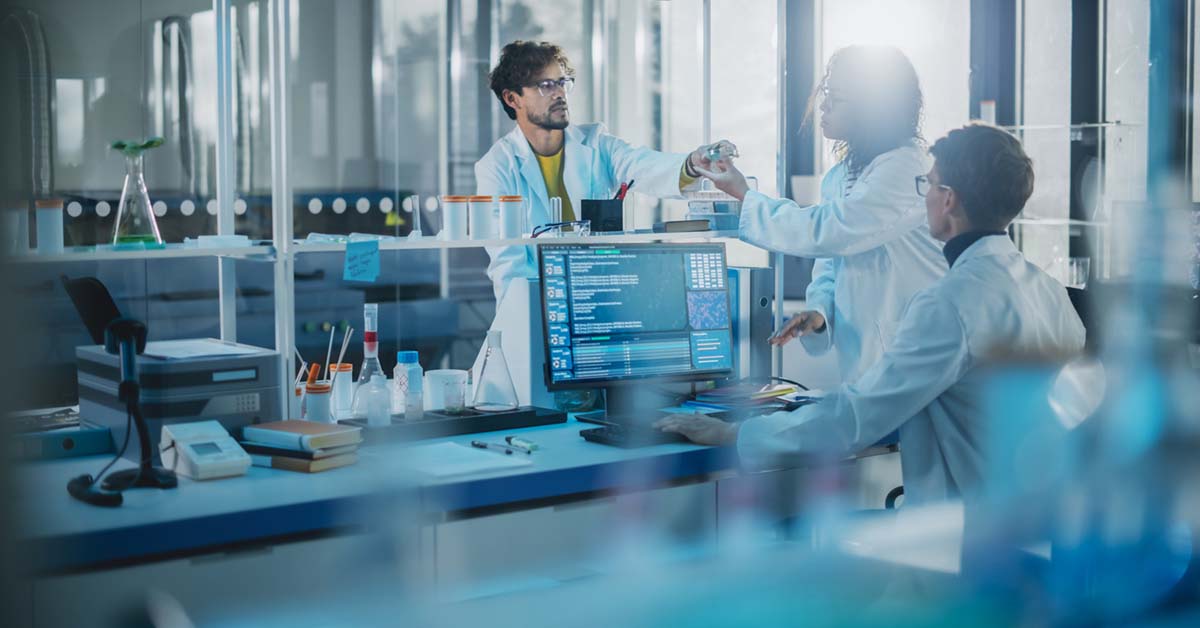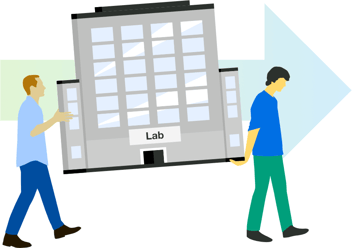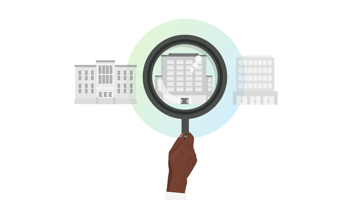Is your incubator feeling a little cramped? Did you need more control over your operations? How about a little more privacy? Congratulations! This means you’re ready to leave the nest and move to a lab of your own. You already know it’s a lot of work (a typical laboratory move can take three to six months of planning before a single item is moved) and expense (new lab construction can cost anywhere from $375-$1325 per square foot). But there are other considerations when planning your big move.
Four considerations for biotechs scaling up to new labs
- What’s the market demand for lab space and for talent? While funding dried up significantly in 2022 after the frenzy of the pandemic, R&D job openings rebounded in 2023 to record highs, which will most likely lead to increased demand for lab space, especially for bench-work-related roles. Not only will this increase competition in the not-so-distant future for available lab space, but will also make location more of a factor to attract talent. Per the 2023 Life Sciences Industry and Real Estate Perspective, “Location matters deeply—especially to early-stage companies— whether it is clustering near like-minded groups or adjacent to concentrations of top-flight scientific talent.”
- Are you planning with the future in mind? You don’t want to go through a lab relocation and quickly outgrow your new space. How do you picture the size of your operation in three years? When planning your lab move, think ahead to how many employees you forecast to have in several years, as well as the type and size of equipment you may need as your research expands. The last thing you want is to undertake the time and expense of a lab move, merely to have to turn around and do it again.
- Do you prefer turnkey, fixer-upper, or new construction? Websites, such as lab-spaces.com and laboratoryforsale.com, list lab space to rent or buy. While most startups shy away from new construction due to funding, it’s important to note that there is “at least a 20% cost increase for renovation vs. a new build, due to… modifications to accommodate mechanical and electrical systems” according to the NAIOP. This cost can significantly increase if there are unforeseen factors, such as asbestos removal.
- Are you aware of federal, state, and local transport regulations? A lab move is one of the most complex moves to undertake and requires exceedingly careful planning for safety, regulatory, and legal purposes.
Considerations include:- What types of vehicles, storage containers, and moving equipment are needed to transport temperature-sensitive materials, fragile equipment and supplies, and live subjects?
- What steps must be taken to safely move out of your existing space? How will your equipment be decontaminated and decommissioned? How can you terminate your services like gas or waste disposal?
- Do you know how to meet applicable transport regulations from governing agencies such as the EPA, OSHA, DOT, DFA, and IATA?
- Are you familiar with state regulations and guidelines to safely relocate chemicals, radioactive materials, and other specialty materials? When relocating across state lines, are you familiar with the rules for each state you will pass through en route to your new lab?
- Have you considered hiring a professional lab moving service? While this may feel like just one more expense, many labs view using professional lab movers as a sound investment. Qualified lab movers offer equipment protection, injury risk reduction, and chain-of-custody management, as well as help navigating regulatory requirements.
- How will you ensure continuity of your lab supply orders and deliveries? What about all of the lab supply orders that are in progress and will be delivered to your current location? How will you ensure that the supplies your scientists need arrive safely and in a timely manner to your new location? How will you notify your suppliers about your new address and make sure they understand the timing? On average, it can take about 30 minutes per supplier simply to update an address. Multiplied across all of your suppliers, this requires time that your team doesn’t have. During the frenzy of a move, these details can be easily missed, but profoundly impact experiments. Having a plan to ensure that all i’s are dotted, and t’s are crossed saves headaches down the road.
How a lab supply marketplace can improve the lab relocation process
As the leading lab supply marketplace, ZAGENO serves as the Amazon of the life sciences industry, covering 5,300+ brands and 40 million+ different product SKUs. ZAGENO’s experience within the R&D sector provides us with unique insights into best practices for major milestones, such as lab relocation.
Accessing a lab supply marketplace:
- Ensures continuous lab supply ordering, tracking, and delivery throughout a lab relocation. ZAGENO’s white-glove customer service team helps manage lab supply order-related relocation tasks, such as communicating with suppliers to update delivery addresses, tracking deliveries, and ensuring order receipt.
Read about how an incubator implemented access to ZAGENO one month before moving to a space 14x larger and saved $1.3M in labor costs, 9,000 hours, and saved 29% on supply costs.
- Helps organizations reduce labor costs and save money on lab supply purchasing that can be reinvested into the business. A ZAGENO study found that clients are able to save an average of 19% simply by using the marketplace to compare product list prices across suppliers before purchasing, using competitive bidding to triangulate varying list prices, markups, and discounts.
Read about how a small biotech increased lab supply orders by 545% while saving 2,900 hours (31% of total spend) with ZAGENO.
Similar to moving out of your parents’ house to your first apartment, or buying your first house, lab relocation is a very exciting, stressful, and expensive time. The good news is that you don’t have to do it alone. Contact ZAGENO today to save time and money during this phase of your company’s growth and beyond.



